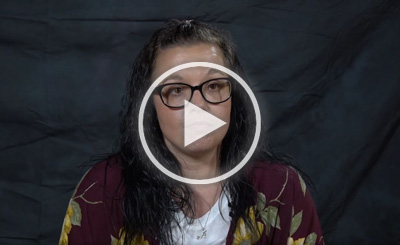Mission
Transforming our community through mind-body wellness.
Story
Our Story
The Community Resilience Network in Western Maryland is a group of individuals committed to using mind-body skills to enhance the well-being of others. Our work was initially inspired by the vision of community leaders who came together to form the Community Wellness Coalition, created to promote Western Maryland as a health and wellness destination.
A robust partnership between Allegany College of Maryland (ACM) and the Center for Mind-Body Medicine (CMBM), along with significant grant funding, has enabled us to greatly expand our outreach into the community. We are deeply indebted to leaders at ACM for their support of mindful initiatives. Allegany County has more citizens, per capita, trained by the Center than anywhere else on the globe. We are committed to leverage this asset to build a foundation of resilience in the community. Dr. James Gordon, the founder of CMBM has observed: "It's exciting to ride this wave of hopefulness, of energy, of commitment to others' welfare" that "has been set in motion in this county."
Eight-week mind-body skills group are at the heart of CMBM's model, which is based on selfcare and group support. The skills learned provide a powerful antidote to the various stresses that are facing all of us in our increasingly distracted world. These skills enable individuals to be more resilient, to connect more deeply with others, and to draw on their own inner resources to respond to life's challenges.
Mindful practices encourage us to replace judgment with curiosity, and to deepen our capacity for gratitude and compassion. By increasing our self-awareness, we strengthen our ability to be present, to be fully alive in each moment. We hope the "mountains of wellness" offered on this site will serve as a valuable guide on your wellness journey.

Experiencing a Mind-body Wellness Group
News
In the News
Vision
Grow a culture of wellness where hope thrives
F.A.Q
Frequently Asked Questions
What are Mind-Body Skills Groups?
The Center for Mind-Body Medicine uses a proven model of Self-Care and Group Support, called Mind-Body Skills Groups. The groups provide a safe space for individuals to tap into their own thoughts, sensations and feelings, while learning skills to mitigate the impacts of stress and trauma on their physical and emotional well-being.
What types of skills do you teach?
Mind-Body skills include: Various forms of Meditation, Guided Imagery, Biofeedback and Self-Expression in drawings, words and pictures.
How do I sign up for a group or workshop?
To register for an announced training, please call 301-784-5341. For more information on other local Mind-Body Skills initiatives, please contact Kathy Condor at kcondor@allegany.edu or 301-784-5526.
Is there an age limit to use these skills?
Mind-Body Skills can be taught to children as young as 2 – and are very helpful for everyone up to the elderly.
Is this a faith-based program?
Mind-Body Skills Groups are not faith-based. People who have a strong faith may find they deepen their faith as they learn new skills and work toward greater well-being.
Do the groups meet virtually or in-person?
Mind-Body Skills group meet in-person and via Zoom. There are advantages to both formats. When signing-up for a group, you can choose the format which best meets your needs and preference. Each group is consistent with the format. We do not offer hybrid groups, in which some members are meeting in person while other join them virtually.
What is the difference between a workshop and a Mind-body Skills Group?
A workshop is generally 1-2 hours in length and provides an overview of the skills, with an emphasis on teaching one skill. The Mind-body Skills Groups generally meet for two hours per week for eight weeks and cover a different topic and skill each week.
Are you required to attend all of the group sessions?
Establishing trust and building connections between group members is an important part of our model. The skills also build upon each other. If you know you are going to miss more than two sessions, we recommend you wait until your schedule allows you to more fully participate.
Can my spouse sit-in with me during the groups?
You and your spouse can enroll in a Mind-body Skills Group together. It is important you are both committed to attending most of the group meetings. Consistency in attendance is important to building trust and continuity.

